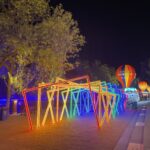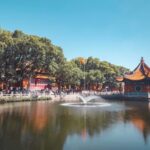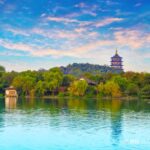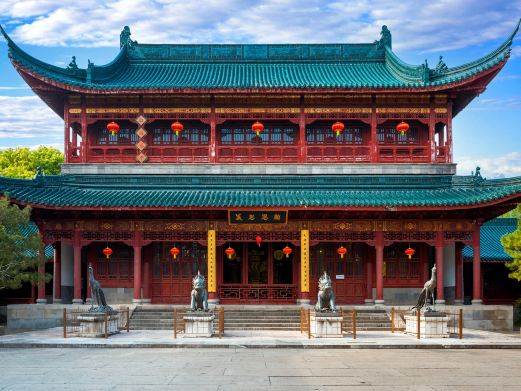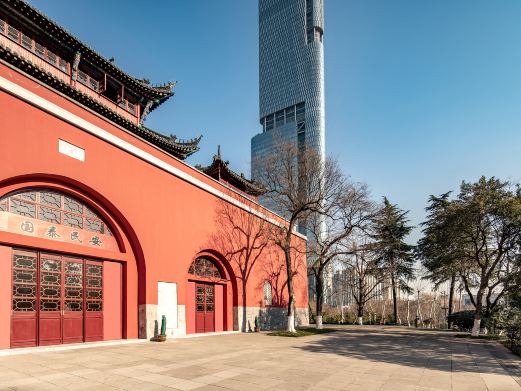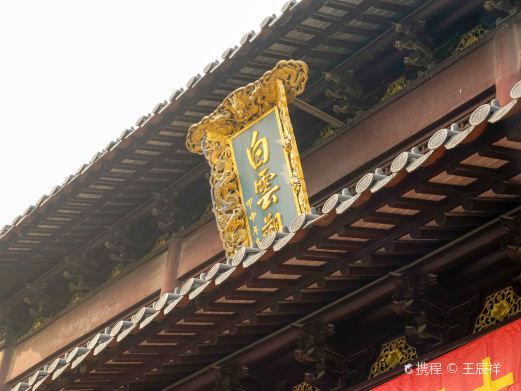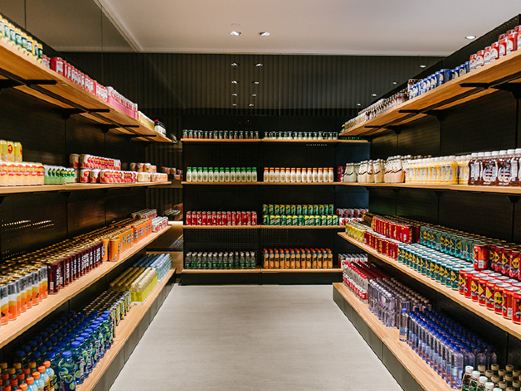Fayu Temple is located in the central part of the Putuo Mountain Scenic Area, known as the ‘Back Temple’. It is the second largest temple after the ‘Front Temple’, Puji Temple, and is one of the three major temples on Putuo. Due to its location at the foot of the mountain, it is easily accessible by tourist buses within the scenic area, attracting a large number of worshippers daily, making it one of the temples that visitors to Putuo Mountain should not miss.
To visit Fayu Temple, you can walk down the steps from Huiji Temple on the summit of Buddha’s Peak along the Xiangyun Road, or you can travel by car or on foot from Puji Temple (approximately 3 kilometers away). Upon entering through the archway of the mountain gate, you arrive at the Haihui Bridge over the release pond. Looking up, you can see the four large characters ‘Tianhua Fayu’ on the red wall. The groups of red carp in the release ponds on both sides are also an unforgettable sight of Fayu Temple.

After passing the release pond, you follow the winding path uphill to reach the main complex of Fayu Temple. The temple is built against the mountain, arranged on six terraces. There are the Hall of the Heavenly Kings, the Jade Buddha Hall, the Nine-Dragon Guanyin Hall, the Imperial Stele Hall, the Mahavira Hall, and the Abbot’s Hall, each hall rising in height. Hidden in the camphor forest surrounded by shade, Fayu Temple gives a feeling of both splendor and tranquility.

Inside the temple, it is worth visiting the Nine-Dragon Wall opposite the Hall of the Heavenly Kings, as well as the Jade Buddha Hall and the Nine-Dragon Guanyin Hall (the Great Round Hall). The Jade Buddha Hall originally housed a jade statue of Sakyamuni brought from Myanmar, which was destroyed during the Cultural Revolution. The current jade Buddha was later brought from the Lama Temple in Beijing and is smaller but equally exquisite.

After worshipping at the various halls, you can visit the Dharma circulation area within the temple to request Dharma items. There is a wide variety of Dharma items available at affordable prices. Additionally, the vegetarian food at Fayu Temple is also recommended. There are two meals, one around 10:30 AM and another around 4:30 PM, costing 5 yuan per person, which is cheap and filling, and serves as one of the ways to experience the Buddhist atmosphere. Not far from the temple is Qianbu Sand, where after praying and blessing, you can walk to see the sea and take a quiet stroll on the beach. If it is in the evening, you can also witness the sunset over the sea.
2. The Putuo Mountain scenic area tickets do not include temple incense tickets and tickets for Luojia Mountain attractions. 3. The above information is for reference only; please refer to the information disclosed by Putuo Mountain scenic area on the day of your visit for specifics.
